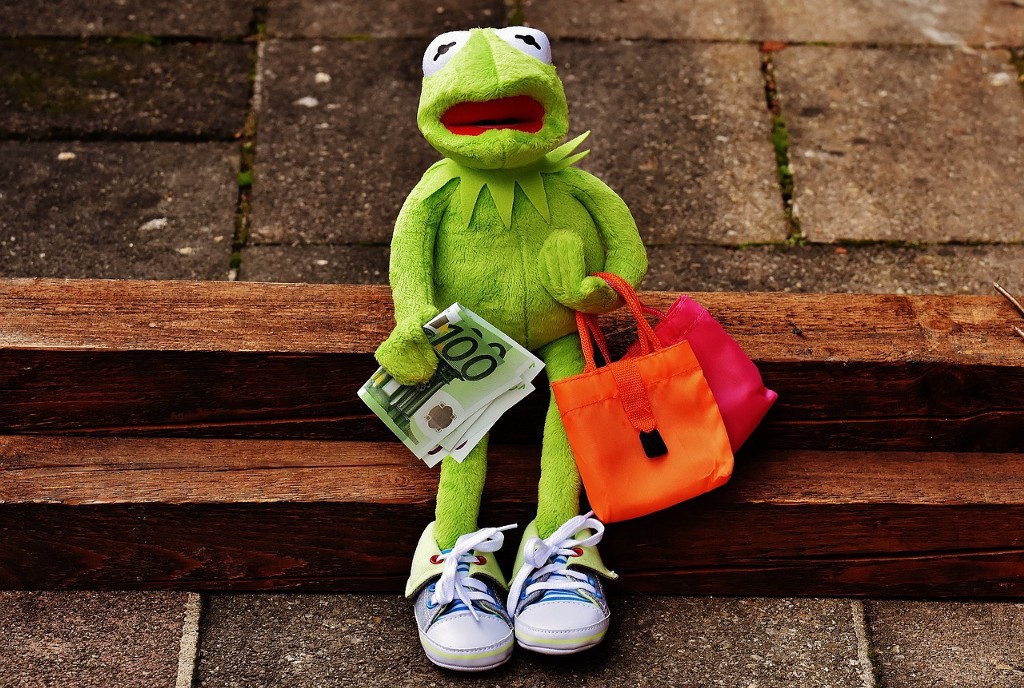No, You Probably Don’t Need a “Stuff Quarrantine”
If you’re buying stuff that you don’t need, a quarantine isn’t going to help you solve that problem.

Part of the allure of Marie Kondo’s infinitely frustrating and twee organizing system is the promise of an completely curated existence. By surrounding yourself with items that you really, truly love — items that bring you joy — everything is significant. Everything has deep, real meaning. Nothing is frivolous. Everything is pure. But, what happens when you’re trying to course correct for the promise of joy when accumulating new stuff? Can you accurately predict whether or not something will bring you joy when you buy it?
This seems to be the central thesis of a “stuff quarrantine,” as illustrated back in July by Carl Richards at the New York Times.
New Rule: All Purchases Subject to a 7-Day Mental Quarantine
As he cleaned out his home of the sort of unnecessary clutter and stuff that he somehow amassed over the years, he realized that in order to keep things under control, you have to think about what you buy as well as what you’re throwing away. Enter the 7-day quarantine, as laid out below.
From now on, before anything new comes into the house, resident buyers will need to answer a series of questions. How much did it cost? Are you replacing something you already own? Why do you think it’s amazing? And if it’s food, are you sure you’ll eat it?
When asking these questions of something that’s purchased, and especially for purchases over $50, he suggests sitting with the thought of the thing you’re going to buy for a full week, agonizing unnecessarily over these questions and then putting down the stuff and waking away from it, most likely.
In theory, the quarantine sounds great and makes good logical sense. Thinking about a purchase you’re about to make and considering its utility is something that you should consider before buying anything, of course. By all means, if you’re about to buy a meat smoker and a side of beef to take back to your one bedroom apartment, it is in your best interest to consider those inquiries. But for every other purchase from the mundane to the extraordinary, I don’t think these questions are necessary. It’s unrealistic to expect that you’d think about everything before you buy it with the same strict kind of rules.
If I applied these questions to the body wash and the pack of cleansing wipes I just bought, my answers would be as follows:
- It cost me $13 or so.
- I’m almost out of body wash, and I can’t keep using my sister’s because she will eventually notice.
- No, I don’t. I can’t afford the stuff that I think is amazing, so this is the best I could do.
A stuff quarantine only works if you have the kind of money to buy stuff that is indeed “amazing” from the outset and the fact that one of the questions that you must answer is “Is it amazing?” is, frankly, dumb. Until we can afford things that are actually “amazing,” we all have to settle with “It works for now,” and be happy about it either way.
What the quarantine method doesn’t take into consideration is the accrued joy an item brings over time. If you buy something as mundane as a pair of socks or a humidifier, feeling no particular way about the purchase, and then find yourself growing fonder and fonder of it over time, that counts for something. The item in question is almost more valuable because you’ve spent time with it to figure out just why you like it so much. Joy doesn’t always mean “happiness” when it comes to material goods — my tongs don’t bring me joy when I look at them, but they are indispensable and I use them every time I cook. That’s good enough for me. But, had I asked myself the questions before purchasing said tongs, I’d have gotten stuck on the last question, before realizing that I can’t afford amazing tongs, so I might as well have no tongs at all.
I’m taking this very literally, of course, but anyone who purchases with any care already considers these questions before they buy the thing, but without needing to spend an entire week agonizing over it. If you think about the chef’s knife or the cutting board or the vacuum cleaner repair — really think about it, turn it over in your head, over and over again — you will eventually psyche yourself out of making a purchase, even if it’s something you actually need.
The key to decluttering a home and creating an environment full of peace and not much else, of course, is to buy less things. But, it’s okay if you buy things you don’t really think you like but need for some undefined reason that only makes sense to you. Trust yourself enough to buy that dumb cord management system from Best Buy. Know that even if it doesn’t bring you the immediate, visceral joy or answer all the questions, it’s still worth it. It will serve a purpose and that’s just enough.
Support The Billfold
The Billfold continues to exist thanks to support from our readers. Help us continue to do our work by making a monthly pledge on Patreon or a one-time-only contribution through PayPal.
Comments